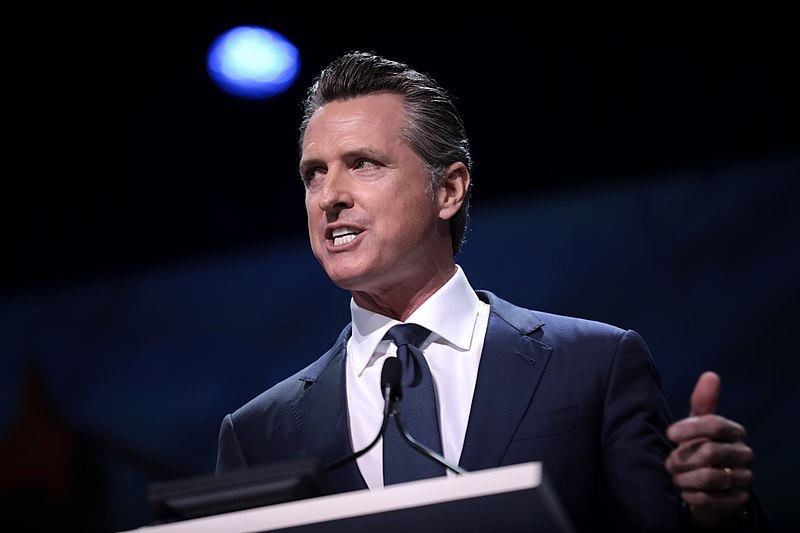Fourteen months of COVID quarantine made one thing clear: we need our broadband.
It used to be only media activists who insisted that Internet access was an essential service; now it’s accepted wisdom.

Unfortunately, the last year has also made clear that the current system is broken. Pictures of kids doing homework in parking lots because they have no broadband at home highlight the problem: The market has failed to deliver adequate broadband because there is no market.
High-speed broadband in most areas is available only from the monopoly cable company, occasionally from the duopoly phone company. It’s overpriced, unreliable, and – even based on the carriers’ overstated reporting — simply not available to millions of Californians – certainly not at the bandwidth needed for today’s applications.
People know this is so, despite industry propaganda to the contrary.
Californians need fast, modern Internet. Gov Newsom has responded with a budget that allots $7 billion — from a mix of state surplus dollars and federal rescue money – to actually build public broadband infrastructure rather than just talk about it or continue to throw money at the incumbents.
Crucially, the budget proposes to use $4 billion to construct a statewide, open-access middle-mile network using California’s highway and utility rights of way. It’s by far the most visionary broadband plan California has ever had, a watershed for a state that has never had the infrastructure to match its vaunted innovation. Open access networks have succeeded elsewhere, and can succeed here.
Now the plan just has to get through the State Legislature, and there’s the rub. The California Legislature has historically been captive to the largest telecom and cable companies. And once again, their lobbyists are working overtime.
Although the Governor delivered a detailed budget and roadmap, and the enacting legislation has been drafted, and although the need is urgent, the Assembly Budget Committee, chaired by Phil Ting, now says that it wants more time to think it over.
We’ve seen this movie before. In letters to the Governor and the Legislature, the largest Internet service providers protest that of course they want to help connect all Californians, but new programs are unnecessary and should in any event be limited to areas that are demonstrably “unserved.”
In other words, the big monopolies are doing a fine job “serving” who they say they are serving.
There are two problems with this: they are not doing a fine job, and they are not serving who they claim to be serving. The Legislature has nonetheless come up with a report suggesting the governor’s plan is premature and that it may be better in the interim to continue subsidizing the incumbents’ “affordable” service – a convenient fig leaf to hide behind if the committee does not act before a June 15 deadine.
This will perpetuate a paralysis that has gripped the State for decades. Government officials like San Francisco Supervisor Hilary Ronen and former Supervisors Tom Ammiano and Mark Farrell have all repeatedly suggested moves toward public broadband. Ammiano put forth a “fiber in the sewer” initiative over 15 years ago, for which was attacked by the incumbent providers and their surrogates.
When Farrell tried to set up a workable municipal broadband network, industry lobbyists began crawling the corridors of City Hall, coming up with “every excuse in the book” for why the plan would fail.
Now however, those excuses are no longer valid. The governor has identified the funds. Public sentiment has shifted. States (and localities) are flexing their muscles, taking broadband connectivity into their own hands (it is, after all, public streets and rights of way that carriers use to provide service). There is a growing realization that universal high-speed broadband is overdue, that it key to public safety and economic growth, a lifeline in future climate disasters, and that publicly-sponsored broadband is the only way to break the incumbents’ stranglehold.
As Ernesto Falcon, legislative counsel at the Electronic Frontier Foundation puts it, “Each day California sits out deploying this infrastructure puts us further behind the queue in demand [for available funds] and further delays actual construction.” EFF Legislative Activist Hayley Tsukayama adds, “Inaction has a cost, both in terms of federal dollars we could lose and continued pain for Californians … California is the world’s fifth largest economy. Its broadband infrastructure standards shouldn’t be stuck in the 1990’s.”
The governor’s open-access plan means fiber lines up and down California, which will allow any entity to access and utilize them at fair market rates and in a non-discriminatory manner. This will enable competition of every stripe, including municipal distribution systems.
The only question is whether the Legislature will once again bend to the will of the big ISPs, as it has in the past, and kill the project. Industry will provide cover, drumming up astroturf groups to create the appearance of public opposition; it will claim this is a waste of money, unfair competition, and a political ploy. The one thing they don’t want, and won’t talk about, is competition.
Meanwhile, the problem is worse than it seems. California’s broadband maps rely on unaudited data the carriers report to the FCC, which FCC officials themselves admit ridiculously overstate broadband availability and speeds. Most Californians know the only alternative for high speed broadband is the cable company.
The governor’s plan would require the state’s agencies to get real and coordinate with each other – the California Public Utilities Commission, the Office of Emergency Services, the Department of Technology, CalTrans, and others. That is the only way the network California needs is going to get built.
Chris Witteman served as counsel to the California Public Utilities Commission for 17 years. Tracy Rosenberg is the executive director of Media Alliance, a Northern California democratic communications advocate. More at www.media-alliance.org





